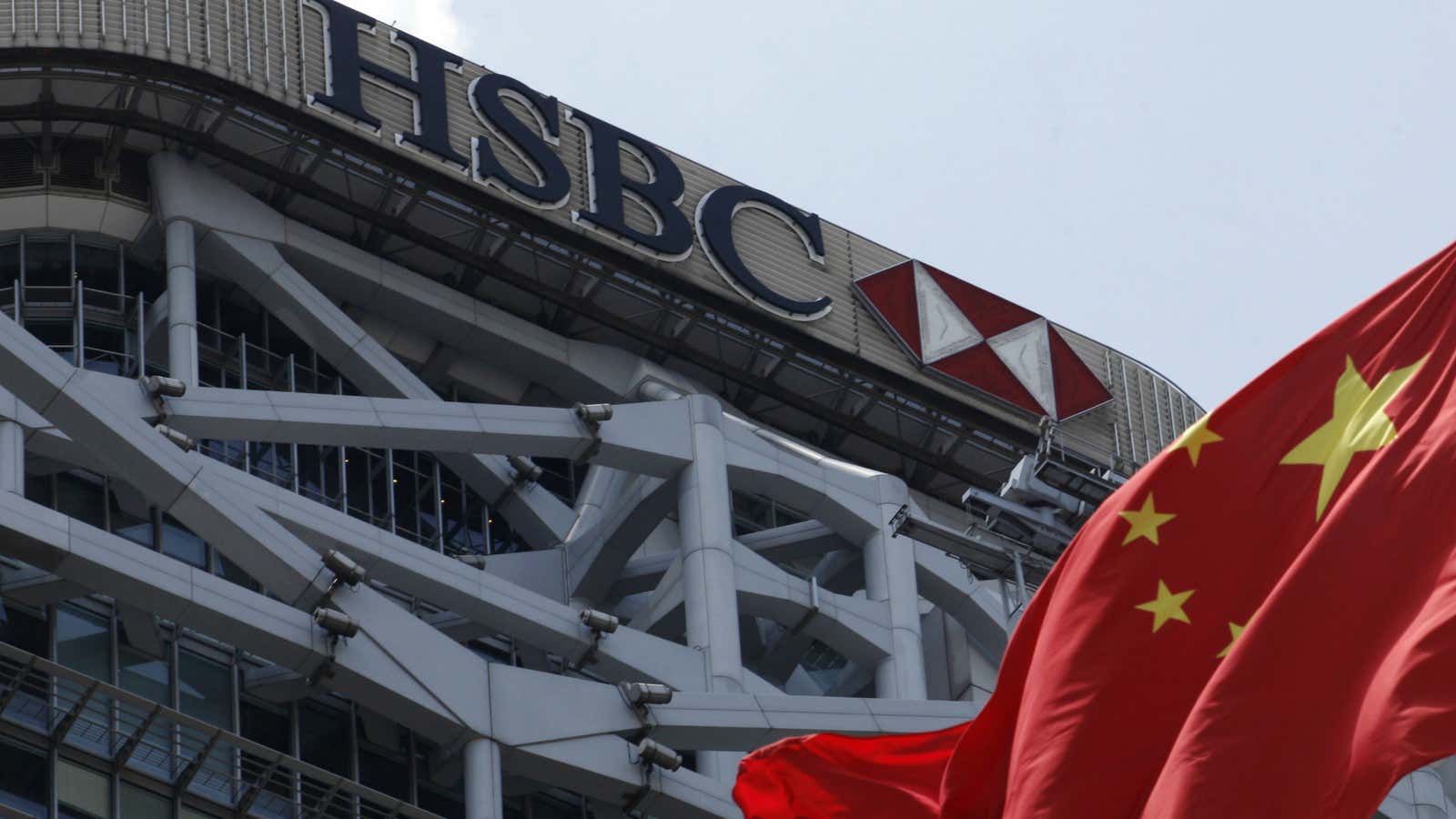HONG KONG—An HSBC board member riled Hong Kong’s pro-democracy protesters by likening the city’s citizens to American slaves who should be more patient about gaining the right to vote.
According to a Hong Kong newspaper, at a trade meeting in Paris on Oct. 29 Laura Cha said: “American slaves were liberated in 1861 but did not get voting rights until 107 years later, so why can’t Hong Kong wait for a while?”
Cha’s remarks come after HSBC, the largest foreign bank in China by both assets and branches, told investors to sell stocks ahead of the protests and pulled advertising from a pro-democracy publication.
Cha’s metaphor disturbed Hong Kong citizens, who started a petition asking HSBC to “strongly denounce her insensitive remarks in exploiting painful African-American history for her own agenda” and “educate her about the importance of the Civil Rights Act in American history.”
We, the Hong Kong public, will not stand these remarks likening our rights to slavery, nor will we stand the kind of voter disenfranchisement her and her associates attempt to perpetuate on the Hong Kong public.
Cha is an independent non-executive director on HSBC’s board, and a member of the bank’s nomination committee as well as its “conduct and values” committee. She is also “the first person outside mainland China to join the Central Government of the People’s Republic of China at vice-ministerial rank,” the bank notes. By this afternoon in Hong Kong the petition had over 5,300 signatures, including from people who said they were based in Australia, the US, and the UK.
Cha responded to the petition in a statement saying her “comment on the Civil Rights Act and the Voting Rights Act was by way of example that every country’s path to democracy was evolved in its own historical context. She did not mean any disrespect and regrets that her comment has caused concerns.”
For what it’s worth, the historical references in her original comments aren’t strictly accurate—male former slaves in the United States were granted the right to vote in 1870, as this rebuttal of her remarks by Big Lychee, a Hong Kong blogger, points out. (To be sure, taxes and literacy tests did effectively block many African-Americans from voting into the 1900s.) Also, slavery wasn’t fully outlawed in the US until 1865, not 1861.
HSBC’s Hong Kong office said the bank had no comment on Cha’s remarks. Previously, when a former bank chairman mused on his private blog that Hong Kong’s Beijing-backed chief executive should step down, the bank quickly clarified: “Eldon was commenting as a private individual and the bank would like to clarify his comments do not in any way reflect the view of HSBC Group.”
In July, HSBC analysts warned investors to sell Hong Kong stocks because of a potential pro-democracy protests. The bank lowered its outlook on Hong Kong from “neutral” to “underweight,” saying:
We reduce Hong Kong to underweight on concerns about negative news flow. “Occupy Central,” a campaign for greater democracy, could sour relations with China and may hurt the economy.
That advice turned out to be wrong. The Hong Kong protests have lasted much longer than many predicted, but stocks appear to have emerged unscathed—the Hang Seng Index was the world’s second-best performing stock index in October, and the World Bank said this week that the city is still one of the easiest places in the world to do business.
HSBC is also one of several banks that pulled advertising from pro-democracy newspaper Apple Daily, whose owner Jimmy Lai is a supporter of the protests.
On the streets in Hong Kong, HSBC’s “world’s local bank” ads have been brilliantly parodied at the protest sites:




